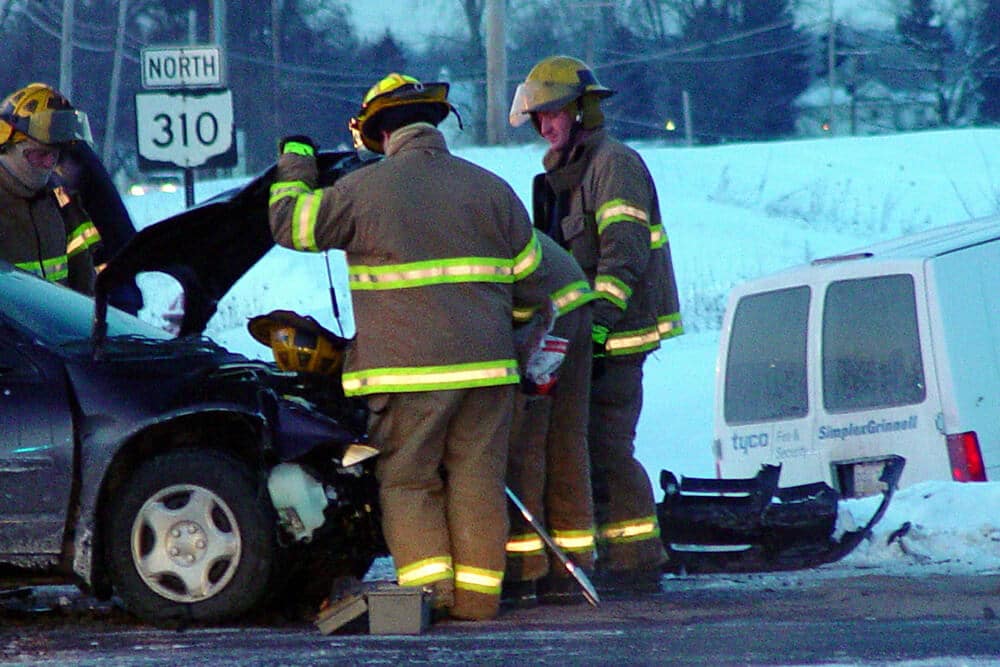What Information is Included on a Maryland Police Accident Report?

A police report can play a major role in how your insurance company views your car accident claim. While police officers are not dispatched for every accident, they are sent when someone has been injured, when the accident is blocking traffic, when any of the drivers are under the influence of drugs or alcohol, or if the parties are fighting about what happened.
When the police officer arrives, they will talk with the involved parties, investigate and assess the accident scene, take photographs, talk to possible witnesses, and generate their report. The reports contain a variety of information; however, it’s important to understand that no two reports are the same. Every police department is likely to have their own form and their own way of generating the reports.
If you’ve been in an accident in Maryland, it’s important to understand how the information on the police accident report can affect your settlement offer. Let’s take a closer look at police accident reports in our state, so you have an idea what to expect in the event you’ve been in an accident.
What is a Police Accident Report?
A police accident report is something that is generated by the law enforcement official who responds to the scene of a car accident. Law enforcement officials may be local police, county sheriffs, state police, or highway patrol officers. The report they file summarizes the information regarding the motor vehicle collision. It contains both the facts related to the accident and the opinions of the investigating officer. This report may be useful for an insurance claim or a personal injury lawsuit.
How Does a Police Officer Assess an Accident Scene?
The officer who responds to your car accident will be the one who generates the accident report. When the officer arrives on the scene, they will interview the involved parties. If there are witnesses available, the officer will likely ask for their version of what happened.
After the officer speaks to the necessary individuals, they will take photographs of the scene. This includes the damage done to the involved vehicles, any collision debris on the road, and the condition of the road and weather. The officer will use this information to generate the accident report.
What Information is on a Standard Police Accident Report?
The police accident report will include information related to the investigation the officer conducted. Some or all of the following information may be included on the report:
- The approximate date, time, and location of the crash
- The identifying information for the involved parties, including names, addresses, phone numbers, and insurance information
- Contact information for any witnesses who agreed to provide testimony
- The statements from the involved parties and the witnesses
- The locations of the damages the vehicles sustained
- The conditions of the weather, lighting, and roadway
- A diagram of the accident
- Information on any issued citations as a result of violated laws
- Opinions as to who is liable for the accident
The information on the report may be fact or opinion. While the date, time, and location are most certainly facts, the fault determination is the opinion of the responding officer. Regardless of what that opinion is, the insurance company will conduct an investigation and come to their own conclusions. In some instances, the opinions of the police officer and the insurance company may differ.
How Does the Police Accident Report Affect Your Accident Claim?
Once you file your car accident claim with your insurance company, the assigned adjuster may ask you to provide a copy of the police report. Other adjusters will obtain the report on their own. If you’re asked to get them a copy, you will need to request a copy from the local law enforcement office that drafted the report. All you should need to do is provide them with the identification number or the date, time, and location of the accident. There will likely be a fee involved.
Regardless of what the police report says, the adjuster will investigate the claim. In rare occasions, the adjuster may uncover something the responding officer missed; however, most of the time, the police accident report is the most persuasive document for determining accident liability.
If the officers did not assign fault, you will need to gather your own evidence to support your claim with the insurance company. If you’re having a difficult time with establishing fault or dealing with the insurance company, a personal injury attorney can help.
Understanding all the facets of managing the consequences of an auto accident can be overwhelming. Whether you’re look for legal advice or representation, contacting a reliable and knowledgeable lawyer can ease the process.






